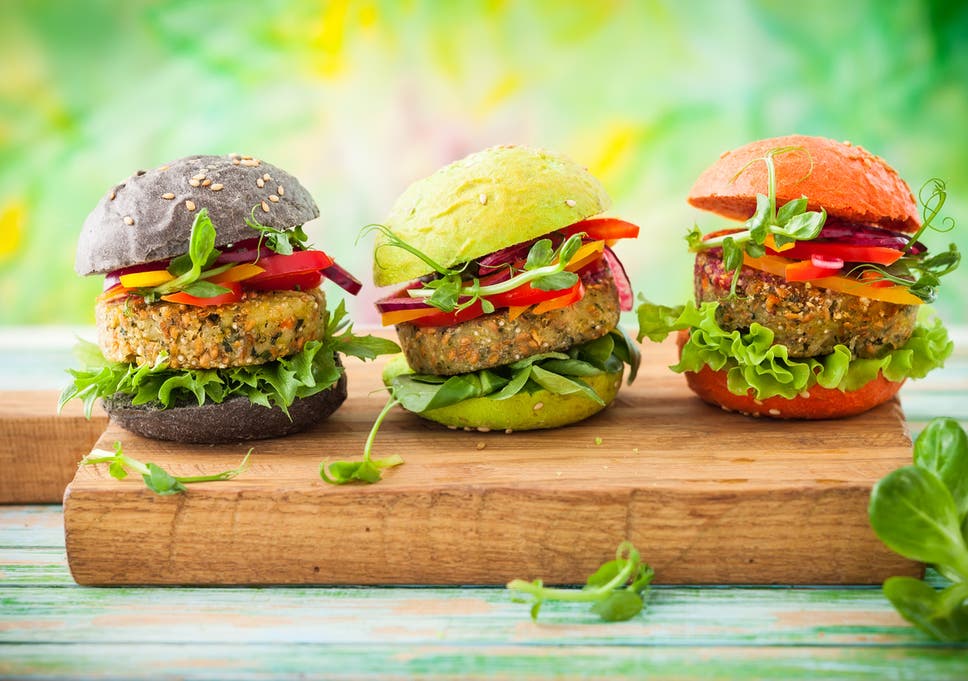 |
| What If everyone on earth became vegetarian? |
A large number of marginal lands, especially hills, are economical for raising sheep or other animals, but not for crops. These lands would cease to be used for agriculture and become brush, gorse or forest. In some places, for example, the British Peak District would change many landscapes.
The price of corn and soybeans would fall - a lot of it goes to the animals, which would significantly reduce the demand for those crops.
Farmers and others involved in animal husbandry would be unemployed. Other farmers would be unemployed because of falling prices of other crops.
Similarly, those who worked in meat processing plants would be unemployed. I do not know how big or small they are, but I suppose that would cause difficulties in the surrounding areas when a large number of people suddenly find themselves unemployed.
The fishermen would be unemployed. Just like the people who work in the fish processing plants. The sushi restaurants would have considerably less interesting menus.
There would be changes in the ecology of the oceans as overexploited species return and recover. Presumably, vegetarians would not wear a fur coat, so seal populations could also increase.
The egg and dairy industries produce cattle and chickens as a by-product, subsidizing egg and milk production. There would be a lot of cattle, male chicks and old chickens that people did not know what to do. Maybe we could find uses - it depends on why everyone decided to be a vegetarian. If it was for health reasons, these animals could be thrown away. If it were for ethical reasons, people could oppose that these animals were killed and wish that they are sent to nursing homes. This would increase the price of eggs and milk. That could be offset, in part, by lowering the price of their food, but I do not think that would make up for that. A cow produces a calf every year (I think) to continue producing milk - this will result in many cows in nursing homes.
The price of pet food would probably drop. It would be something to do with all the animals in excess. If farmers were forced to keep their animals, they could pay to turn them into pet food.
If people were vegetarians for moral reasons, it might be impossible to find people to kill animals and make pet food.
There would be reductions in greenhouse gas emissions. Cattle produce methane that is released when they fart and burp. Creating fertilizers to feed the crops consumed by animals uses fossil fuels. These would both be reduced. I do not know at all what proportion of greenhouse gas emissions are due to global warming - but "some".
Runoff caused by excess fertilizer, which produces excess algae in rivers and the sea, would be reduced.
Oyster populations would increase dramatically - when oysters were not harvested, the seabed was covered in large numbers - sometimes in layers, as oysters grew on oysters. These filter the sea and keep it cleaner.
There is likely to be more malnutrition and vitamin deficiencies, especially among the less educated and the poorest. To become a vegetarian, you do not have to think much about food, but you have to think a little. (Especially if the price of eggs and rockets to pay for chicken and cow retirement homes).
MacDonalds, Burger King, Denny, etc. would need to change their menus. Such a dramatic change could change the landscape of restaurants (at least in the United States).
Industrial uses of animal products may be difficult to obtain. For example. Gelatin (like photographic film - more than it is leftover) may have trouble finding gelatin for these substances. Would the vegetarian population stop wearing leather shoes? Probably not - so there could be a shortage of leather, or even excess, because farmers were looking to use the animals in their retirement homes. If vegetarianism was motivated by health reasons, the price of leather would increase considerably because you would sell only one cow for his skin, not for his meat.
There may be an overpopulation of some wild animals that are hunted for their food. These may need to be picked to avoid problems. It can be difficult to find vegetarians willing to slaughter the animals.
We would need more plants to make things like tofu, soy milk, and so on. (especially if they were used as substitutes as the price of milk and eggs increased). Lower soybean prices would increase margins on these products, which could happen fairly quickly. But for a while, grocery stores will be fighting over the last carton of soy milk.
I'm not sure what would happen to the price of wool. Sheep are essentially free to stay, you simply leave them on marginal lands that have few other uses. I think mowing the sheep is profitable and the profit is in the meat, but I do not know.
The price of organic food may increase because, without manure, there are not many good sources of high-density organic fertilizer. (Although if the animals are in retirement homes, there will still be many.) There is compost, but it takes time to do and is much larger than the manure.
No one is going to need a smoker anymore. Smoked tofu is probably not going to do it. The demand for charcoal will fall. Some woodlands are supported by their charcoal production.
Vegetarians would not have to remember to mention it when they booked their flights (at least if it was one of those who were getting rarer flights where they gave you food) or when they were invited to having dinner.

No comments:
Post a Comment